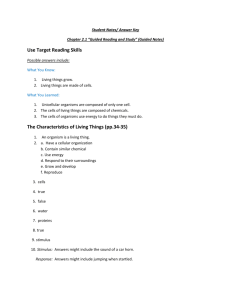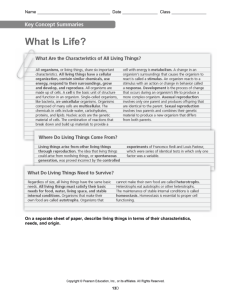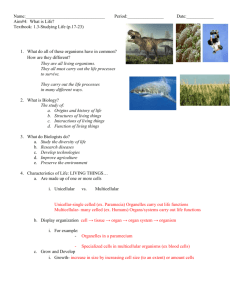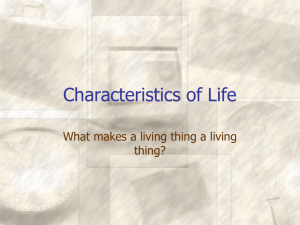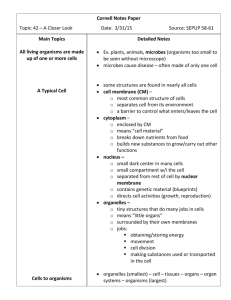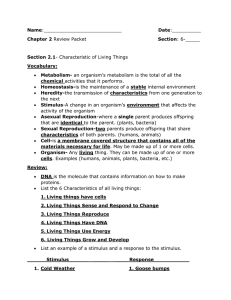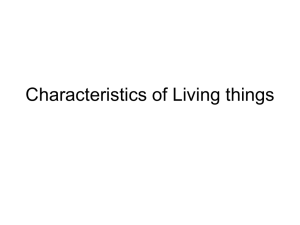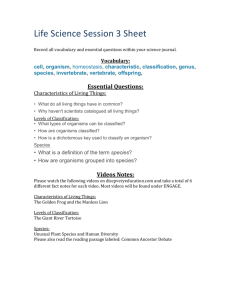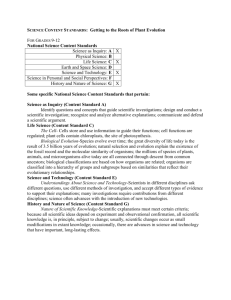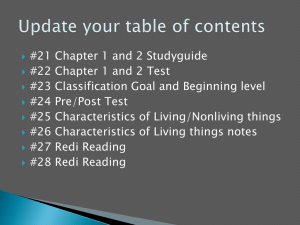Biology Vocabulary: Key Terms & Definitions
advertisement
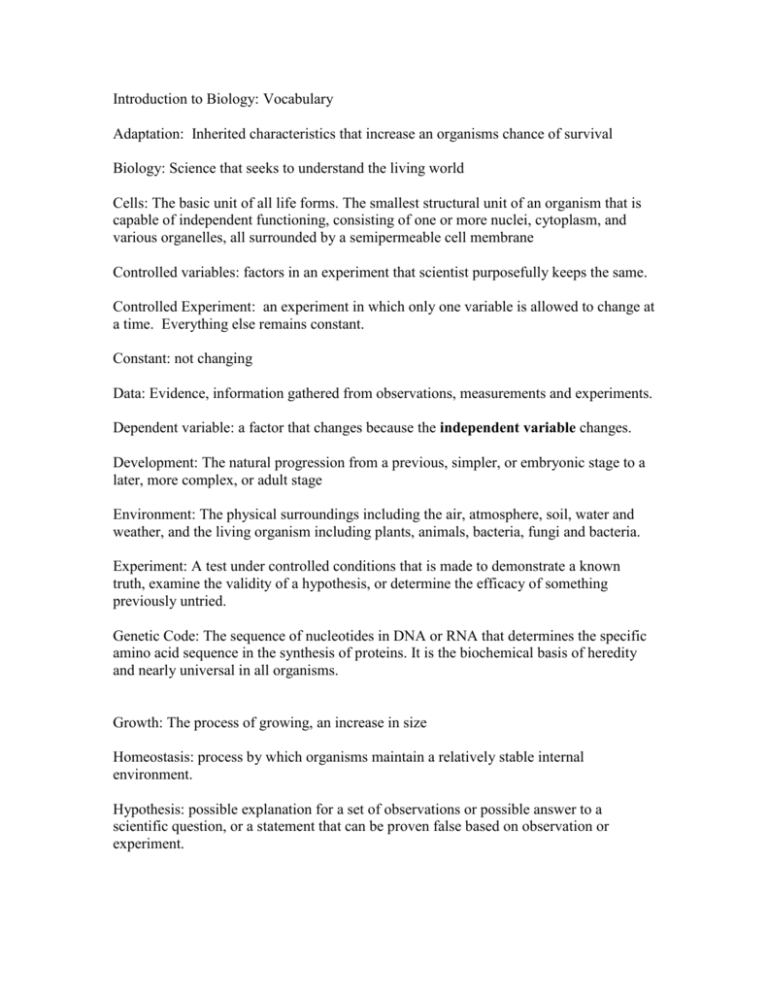
Introduction to Biology: Vocabulary Adaptation: Inherited characteristics that increase an organisms chance of survival Biology: Science that seeks to understand the living world Cells: The basic unit of all life forms. The smallest structural unit of an organism that is capable of independent functioning, consisting of one or more nuclei, cytoplasm, and various organelles, all surrounded by a semipermeable cell membrane Controlled variables: factors in an experiment that scientist purposefully keeps the same. Controlled Experiment: an experiment in which only one variable is allowed to change at a time. Everything else remains constant. Constant: not changing Data: Evidence, information gathered from observations, measurements and experiments. Dependent variable: a factor that changes because the independent variable changes. Development: The natural progression from a previous, simpler, or embryonic stage to a later, more complex, or adult stage Environment: The physical surroundings including the air, atmosphere, soil, water and weather, and the living organism including plants, animals, bacteria, fungi and bacteria. Experiment: A test under controlled conditions that is made to demonstrate a known truth, examine the validity of a hypothesis, or determine the efficacy of something previously untried. Genetic Code: The sequence of nucleotides in DNA or RNA that determines the specific amino acid sequence in the synthesis of proteins. It is the biochemical basis of heredity and nearly universal in all organisms. Growth: The process of growing, an increase in size Homeostasis: process by which organisms maintain a relatively stable internal environment. Hypothesis: possible explanation for a set of observations or possible answer to a scientific question, or a statement that can be proven false based on observation or experiment. Independent variable: A factor in an experiment that may cause change in another variable. Inference: logical interpretation based on prior knowledge and experience. Metabolism: set of chemical reactions through which an organisms builds up or breaks down materials as it carries out its life processes. Observation: Use of one or more of the senses- sight, hearing, touch, smell and sometimes taste to gather information. Organism: An individual form of life, such as a plant, animal, bacterium, protist, or fungus; a body made up of organs, organelles, or other parts that work together to carry on the various processes of life. Organization: the arrangement of elements with varied functions that contribute to the whole and to collective functions Quantitative: a characteristic that can be measured or expressed using numbers. Qualitative: a characteristic that is not expressed using numbers; it is expressed based on its qualities. Examples: bright, dim, green, dull, hard, soft, fluffy etc. Reproduction: The sexual or asexual process by which organisms generate new individuals of the same kind. Response: Single, specific reaction to a stimulus Science: a process for learning about the physical world using the scientific method, and the body of knowledge collected in this way. Scientific method: Species: A group of similar organisms that can breed together under natural conditions and produce fertile offspring. Stimulus: any kind of detectable signal that carries information Theory: A well tested idea that explains a group of observations; Variable: A factor that can change or can be changed. A variable can change other factors when it changes.

